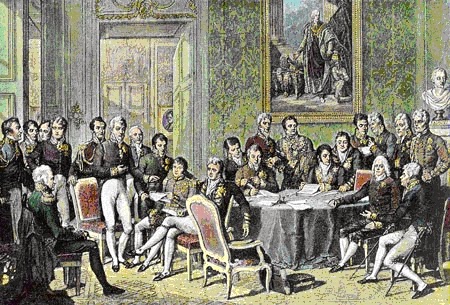
Louis Philippe sought to reconcile the principle of dynastic legitimacy with the principle of national sovereignty.

This was a major constitutional innovation that linked sovereignty to the bourgeoisie and not only to the monarch, who, according to a fine expression by Adolphe Thiers «règne mais ne gouverne pas». First, it was a constitution approved by the two branches of Parliament and not obtained, or granted by the sovereign, who was King of the French with the revolutionary formula “by the Grace of God and the Will of the Nation”. Louis Philippe had approved a constitution whose mechanisms, although they did not differ much from the previous one granted by Louis XVIII in 1814 had completely changed in its ideological presuppositions. Anyway, the arrival of Louis Philippe sent a paradigmatic shock wave throughout Europe. For many, it presented itself as the product of a victorious revolution and therefore destined to develop further revolutionary action at home and abroad, while for others, it represented, instead, the solution adopted to stem and prevent a revolutionary spread.

Since the beginning, Louis Philippe, who came to power after the July Days of 1830 – acclaimed by the national bourgeoisie – had to struggle amidst the difficulties of a misunderstanding inherent to the origins of the new monarchy. With Louis Philippe d’Orléans, son of Philippe Égalité, France tried to revive those liberal ideals eliminated by the reign of the previous, decidedly conservative monarch Charles X. His work allowed him to govern France for eighteen years, through a balanced formula based on two main guidelines: the defence of the interests of the moderate clergy and the enlightened aristocracy, and, at the same time, the recovery of the founding reference points of the French Girondin tradition, such as liberalism and moderatism. Claremont, Surrey 1850), which entailed the launch of an original model, able to settle and maintain the continental order, sanctioned a first important break with respect to the European project that arose from the Vienna Congress of 1814-1815. The pro-European projection of Louis Philippe duke of Orléans (b.


 0 kommentar(er)
0 kommentar(er)
